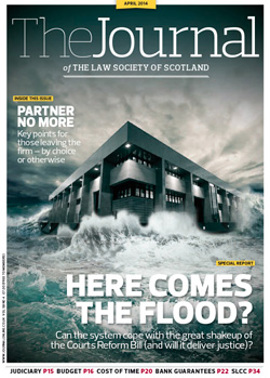User feedback sees results
The report on the public consultation on the implementation of the Land Registration etc (Scotland) Act 2012 has been published on our website.
We received 54 responses to the consultation paper, including responses from key stakeholders such as the Law Society of Scotland, the Council of Mortgage Lenders, and solicitors – both individually and on behalf of their firms. Respondents were generally in support of the policies proposed in the consultation paper, with 60 of the questions supported by all or a majority of respondents.
There were five policy areas where respondents disagreed. Three of these related to proposals to stop showing certain existing information in title sheets. These were:
- the date of entry
- map reference and the size of certain registered plots
- in the property section, reference to the deed constituting a servitude.
The review of responses persuaded the Keeper to continue to show the date of entry, the reference to the deed constituting a servitude, and the extent of certain plots. Following further dialogue with stakeholders, the extent measurement will be triggered at 0.5 hectares rather than the current two hectares. Due to changes in the way we receive the Ordnance Survey map, the map reference will cease to be shown.
The fourth proposal that respondents disagreed with was the suggestion that the standover period would be reduced from 60 days to 30. A range of days was proposed and the Keeper has agreed to the Society’s request for 42 days.
The fifth point was a technical legal one in relation to our proposed policy concerning restriction of warranty when a title sheet is subject to a caveat. A caveat makes clear that a court action affecting the title is in progress. Our review agreed with Professor Gretton’s comments that warranty be excluded when a caveat is entered in a title sheet.
Finally, a number of responses suggested that 2012 Act application forms should be capable of being signed on behalf of the firm (as currently happens), rather than by solicitors using their own names. We agree that the forms can continue to be signed using the firm’s name.
More details, including the reasoning behind the decisions set out above, can be found by clicking on the “consultation report” box at ros.gov.uk/2012act
In this issue
- Scottish banknotes: an uncertain future
- Abolition of all guardianship and mental health laws?
- Attack vectors into the law: phishing
- End of the loan?
- Estate handling, Irish style
- Reading for pleasure
- Opinion: Fiona Woolf
- Book reviews
- Profile
- President's column
- User feedback sees results
- Court reform: does it add up?
- Diverse perspectives
- Countdown to the devolved taxes
- Rewards for the virtuous
- Moving times
- Profitability north and south of the border
- Silence is golden
- Risk assessments and OLRs
- One for the board
- Reshaping history
- Good linking
- Scottish Solicitors' Discipline Tribunal
- People on the move
- A happy marriage?
- Fair Exchange?
- Premium result
- Clients: on good terms?
- Teasing out Taylor
- The law - it's just mental
- Gold dust data
- Ask Ash
- Pritchard Trust applications invited
- From the Brussels office
- Law reform roundup
- SYLA does EYBA - proud






